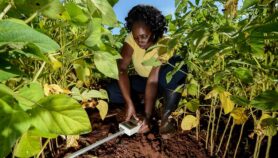By: Gina Lin
Send to a friend
The details you provide on this page will not be used to send unsolicited email, and will not be sold to a 3rd party. See privacy policy.
[BEIJING] China’s Ministry of Education has stipulated seven acts of academic misconduct and how they will be punished in an attempt to combat scientific misconduct in the country.
But critics doubt they can solve the long-standing issue of fraud and misconduct in Chinese academia.
The circular, issued this month (19 March) says that plagiarism, falsifying data and references, fabricating CVs and changing others’ academic achievements or signing their names without permission are scientific misconduct.
It is the latest effort to tackle the problem. In 2006 the Ministry of Science and Technology created a set of rules to monitor state-funded research projects (see China sets up rules to combat scientific misconduct) in response to six high-profile cases of scientific misconduct that year.
The new measures are aimed at misconduct in higher education institutions, following a recent scandal involving Zhejiang University in Hangzhou, where associate professor He Haibo and dean of pharmaceutical science Li Lianda lost their jobs over He’s alleged copying of data.
Punishment for anyone in breach of the new rules could involve warnings, dismissal or legal charges. Their research programmes could also be suspended or terminated, they could lose their funding, or have awards and honours revoked.
The notice also ordered universities to train teachers and students in good academic conduct.
"These measures are intended to build up a long-term prevention mechanism to keep the academic field ‘clean’," said Xu Mei, spokeswoman with the ministry.
But critics say the circular only "scratches the surface of a problem".
Hou Xinyi, a law professor from Tianjin-based Nankai University, says it is the government-controlled grant and award system that has spawned misconduct among Chinese academia.
"In China, the government controls almost all the funding resources, which are usually available for a limited selection of projects," says Hou.
He adds that because it is much easier for people in higher positions to win funding, researchers are faced with the pressures of socialising and gaining contacts and finding the time to publish as many papers in high impact journals as possible — the most important criterion the government rely on to assess eligibility for project funding.
"It is understandable and necessary for the government to have funding control of some major projects essential to the country’s safety and development," says Hou. "But as for that of others, they’d better leave it to academia to encourage true scientific excellence."













